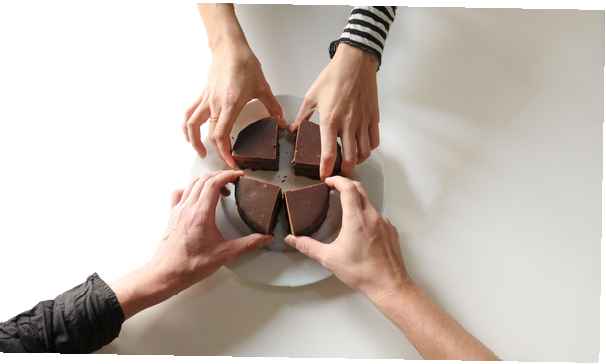Spanische Compartir-Konjugation
 Share
Share
Das spanische Verb Fach bedeutet zu teilen. Es ist eine regelmäßige -ir Verb mögen vivir und escribir.
Die folgenden Tabellen enthalten Fach Konjugationen in der Indikativstimmung (Gegenwart, Präteritum, Imperfekt, Zukunft, periphrastische Zukunft und bedingt), Konjunktivstimmung (Gegenwart und Vergangenheit) und Imperativstimmung sowie andere Verbformen wie die Partizipien der Gegenwart und Vergangenheit.
Compartir Present Indicative
| Yo | Comparto | Ich teile | Yo Comparto la Comida con mi Amiga. |
| Tú | Fächer | Du teilst | Tú Compartes tu habitación con tu hermano. |
| Usted / él / ella | comparte | Sie / er / sie teilt | Ella comparte el carro con su esposo. |
| Nosotros | Compartimos | Wir teilen | Nosotros Compartimos El Almuerzo. |
| Vosotros | Fächer | Du teilst | Vosotros Compartments la Ropa. |
| Ustedes / ellos / ellas | comparten | Sie teilen | Ellos comparten las responsabilidades. |
Compartir Preterite Indicative
Das Präteritum wird verwendet, um über Aktionen zu sprechen, die in der Vergangenheit abgeschlossen wurden. Es kann als die englische einfache Vergangenheitsform übersetzt werden.
| Yo | Compartí | ich teilte | Yo Compartí la Comida con mi Amiga. |
| Tú | Compartiste | Du hast geteilt | Zum Abteilen der Habitación con tu Hermano. |
| Usted / él / ella | Compartio | Sie / er / sie teilte | Ella Compartió el carro con su esposo. |
| Nosotros | Compartimos | Wir teilten | Nosotros Compartimos El Almuerzo. |
| Vosotros | Compartisteis | Du hast geteilt | Vosotros compartisteis la ropa. |
| Ustedes / ellos / ellas | Compartieron | Sie teilten | Ellos Compartieron las Responsabilidades. |
Compartir Imperfect Indicative
Die Unvollkommenheit wird verwendet, um über laufende oder gewohnheitsmäßige Handlungen in der Vergangenheit zu sprechen. Es kann ins Englische übersetzt werden als "wurde geteilt" oder "verwendet, um zu teilen".
| Yo | Compartía | Früher habe ich geteilt | Yo Compartía La Comida con Mi Amiga. |
| Tú | Compartías | Sie pflegten zu teilen | Tú Compartías tu habitación con tu hermano. |
| Usted / él / ella | Compartía | Sie / er / sie pflegte zu teilen | Ella Compartía el carro con su esposo. |
| Nosotros | Compartíamos | Früher haben wir geteilt | Nosotros Compartíamos El Almuerzo. |
| Vosotros | Compartíais | Sie pflegten zu teilen | Vosotros compartíais la ropa. |
| Ustedes / ellos / ellas | Compartían | Sie pflegten zu teilen | Ellos Compartían las Responsabilidades. |
Compartir Future Indicative
| Yo | Compartiré | ich werde teilen | Yo Compartiré la Comida con mi Amiga. |
| Tú | Compartirás | Du wirst teilen | Tú compartirás tu habitación con tu hermano. |
| Usted / él / ella | Compartirá | Sie / er / sie wird teilen | Ella Compartirá el Carro con Su Esposo. |
| Nosotros | Compartiremos | Wir werden teilen | Nosotros Compartiremos el Almuerzo. |
| Vosotros | Compartiréis | Du wirst teilen | Vosotros compartiréis la ropa. |
| Ustedes / ellos / ellas | Compartirán | Sie werden teilen | Ellos Compartirán las Responsabilidades. |
Compartir Periphrastic Future Indicative
Die periphrastische Zukunftsform wird mit der gegenwärtigen indikativen Konjugation des Verbs gebildet ir (zum Mitnehmen) gefolgt von der Präposition ein, und dann der Infinitiv des Verbs.
| Yo | voy ein fach | Ich werde teilen | Yo voy a Compartir la comida con mi amiga. |
| Tú | Was ein Fach | Du wirst teilen | Sie haben ein Abteil für Habitación Con Tu Hermano. |
| Usted / él / ella | ein Abteil | Sie / er / sie wird teilen | Ella va a Compartir el carro con su esposo. |
| Nosotros | Vamos ein Fach | Wir werden teilen | Nosotros vamos a Compartir El Almuerzo. |
| Vosotros | vais ein fach | Du wirst teilen | Vosotros vais a compartir la ropa. |
| Ustedes / ellos / ellas | van ein Abteil | Sie werden teilen | Ellos von einem Compartir Las Responsabilidades. |
Compartir Conditional Indicative
| Yo | Compartiría | Ich würde teilen | Yo Compartiría la Comida con mi Amiga. |
| Tú | Compartirías | Du würdest teilen | Tú Compartirías tu habitación con tu hermano. |
| Usted / él / ella | Compartiría | Sie / er / sie würde teilen | Ella Compartiría el carro con su esposo. |
| Nosotros | Compartiríamos | Wir würden teilen | Nosotros Compartiríamos El Almuerzo. |
| Vosotros | Compartiríais | Du würdest teilen | Vosotros compartiríais la ropa. |
| Ustedes / ellos / ellas | Compartirian | Sie würden teilen | Ellos Compartirían las Responsabilidades. |
Compartir Present Progressive / Gerund Form
Die Gegenwartsprogression wird mit der Gegenwartskonjugation des Verbs gebildet estar, gefolgt vom gegenwärtigen Partizip (gerundio in Spanisch). Das gegenwärtige Partizip für bilden -ir Verben, müssen Sie die Endung hinzufügen -iendo.
Gegenwart Progressive von Compartir
